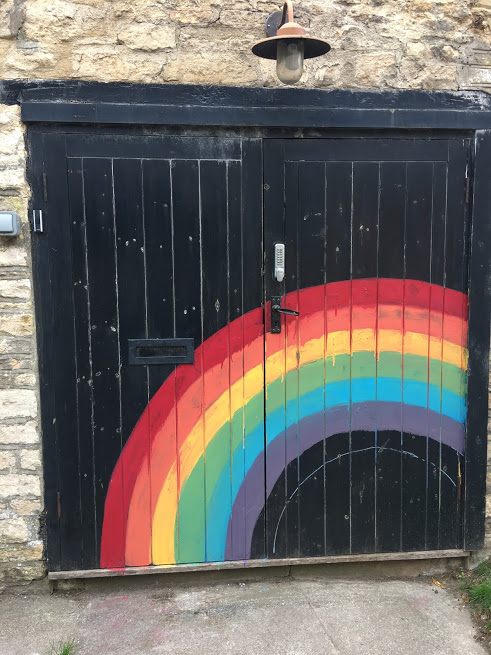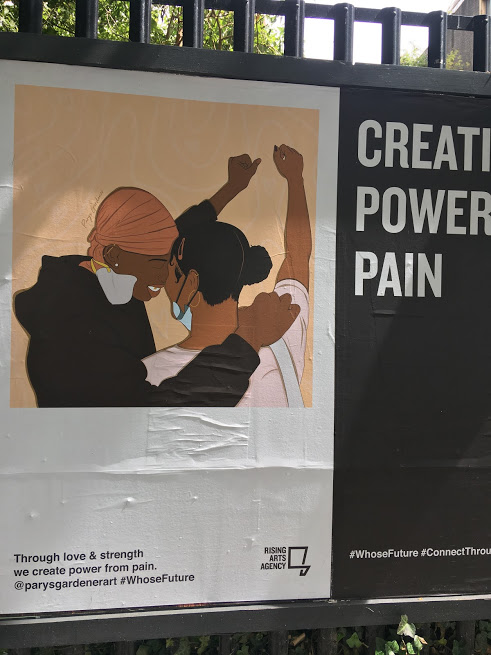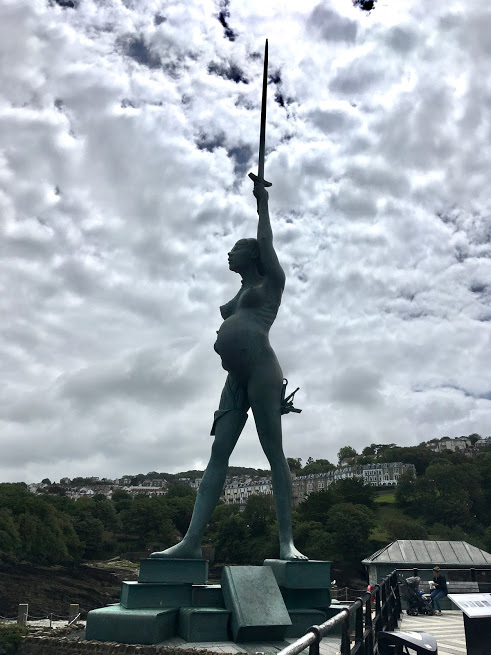This Week’s Bit of String: Unexpected good fortune
I had an essay accepted by a magazine yesterday. It was my second acceptance in a couple of weeks, and came with a glowing email. Just what I needed to perk up a tedious office day.
When someone is highly complimentary of your work, is that enough for you? Or do you want more people to know and heap further praise upon it? In my personal life I’m used to stretching a positive moment, trailing it after me long into the future, wearing it thin. But we have to promote ourselves as writers, so I shared my excitement on social media.

It’s a strange time to share good news. The pandemic, upcoming American election, Brexit, and ongoing racial injustice weigh heavily and I wonder whether it’s insensitive to briefly turn from those.
Then I looked back through the essay I wrote. I don’t usually send personal writing out into the world, and this time I have. My soon-to-be-published piece reflects on some very difficult times, and the impending separation from my son as he leaves for university. There’s been enough pain and it will never be smooth sailing. Using struggles to create art that moves others is something to be proud of, for one fleeting moment.
What We Deserve
Getting published in an online magazine doesn’t bring money or renown, but it’s lovely to hear kind words about my work, and to plenty of us who haven’t had time to submit much, it feels like a big deal. ‘You deserve this,’ says a writer friend, and I don’t know that deserving comes into it.

I work hard on my pieces, and recently took the extra steps of researching submission opportunities and trying for them. I’m able to do this only because my son is much older than my friend’s kids. I’m able to do this because my current day job, while full-time, isn’t emotionally exhausting. I live in a country with free healthcare and no major threat to my safety, so I’m free to create rather than struggle to survive. Many perfectly deserving people don’t have these things.
So I accept that privilege enables my small gains. Some people are so tired of hearing the word privilege, the Trump administration has just banned any federal diversity training which references it. But many of us artists are extremely fortunate. While experiencing hard times lends poignancy to our work later on, that work will usually be created in our safer, quieter moments rather than during crisis itself.
Good, Bad, and Ugly
What about when good and bad exist simultaneously, though? Like, monumentally good and really, horrifically bad. Last weekend I tore through Colson Whitehead’s prizewinning novel The Underground Railroad. I’m still losing sleep over it.
We already know that millions of enslaved persons were kidnapped, tortured, overworked, abused, and in fact legislated by the American government as less than human. Whitehead’s novel simply crystallised for me how white Americans embraced racism to maintain the status quo. Although parts of Whitehead’s book are speculative, he was weaving different atrocities from many periods of American history into one era. Incidents similar to the Tuskegee experiment, the Tulsa massacre, lynchings, segregation, and of course plantation life are included.

Seeing all these packed into one fast-paced novel made me fully question the current American flag and national anthem. How can we uphold symbols of liberty and justice that were created during mass enslavement and cruelty?
Researching “The Star-Spangled Banner,” I learned it was always a controversial choice, because many saw it as promoting war when Hoover made it the anthem in 1931. America was fed up with war at that time.
Its lyricist Francis Scott Key himself was against the War of 1812 although relieved it didn’t wipe his young nation out. He wrote the anthem to celebration the latter. Similarly contradictory were his views on the enslavement of African Americans. He described it as “a bed of torture” but owned slaves himself and defended others’ right to such “property.”
By upholding the victories and imagery from America’s first 80 years, I fear we’re stifling the horrific pain ongoing at that time. America’s not young, scrappy and hungry anymore, it’s just hungry, and it’s time to grow up.
Coasting on the pioneering of democracy—a flawed, limited, early model—can only get America so far. It’s like I can’t really have winning first prize in a 2017 competition headline my bio anymore. Just as I had to do to take my writing to the next level, it’s time to expose the depths of our origins, acknowledging the pain there and perhaps allow something new to be created from them that will represent us all.
Have you been lucky enough to balance good news with bad times? What approach do you take?
More on America’s compromised origins here
More on confronting racism here
More on getting personal with writing here